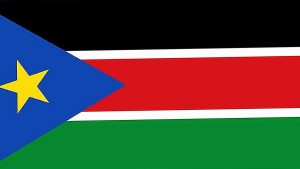Countries With Highest Numbers Of Child Marriages: Child marriage has been popular throughout history and continues to be prevalent, especially in developing nations such as Africa, South Asia, Southeast Asia, West Asia, Latin America, and Oceania. Even in industrialized nations, however, legal exclusions allow for child marriage. Child marriage is becoming less common in most regions of the globe. According to UNICEF statistics from 2018, around 21% of young women globally (ages 20 to 24) were married as minors, a 25% reduction from ten years before.
Niger, Chad, Mali, Bangladesh, Guinea, the Central African Republic, Mozambique, and Nepal had the highest reported rates of child marriages (under the age of 18), with rates above 50%. According to several 2003-2009 studies, Niger, Chad, Bangladesh, Mali, and Ethiopia reported child marriage rates of more than 20% under the age of 15.
Poverty and economic survival strategies; gender inequality; sealing land or property deals or settling disputes; control over sexuality and protecting family honor; tradition and culture; and insecurity, particularly during war, famine, or epidemics, according to UNFPA, are factors that promote and reinforce child marriage.
Recommended; Why Students Fail Examinations: 9 Major Reasons
Top 12 Countries With The Highest Rate Of Child Marriages 2024
1. Niger: Child marriage is a major problem in Niger, a landlocked nation in West Africa. It has one of the highest rates of child marriage in the world, with dire effects for young girls’ well-being and development. Cultural, economic, and social issues all have a role in the occurrence of child marriage in Niger. Child marriage in Niger is largely perpetuated by traditional norms and rituals.

Deep-seated views about female modesty, family honor, and gender norms sometimes lead to early marriages. Families may believe that marrying off their daughters is a good method to safeguard their daughters’ futures, preserve their virginity, and prevent any disputes. Poverty has also contributed to the country’s social ill of child marriage. Niger is one of the world’s poorest nations, with few economic possibilities and widespread poverty. Many families struggle to pay their basic requirements, and marrying off their daughters at a young age might help reduce financial strains. In rare situations, the bride’s family may be awarded a bride price or dowry, which might give financial assistance.
2. Chad: Child marriage is a major issue in Chad. It is one of the nations with the highest rates of child marriage in the world, which has a negative impact on the lives of young girls. Cultural traditions, poverty, limited access to education, and inadequate legal enforcement all contribute to the occurrence of underage marriage in Chad. Chad is impoverished and has little economic prospects, especially in rural regions. Families may see child marriage as a way to reduce financial obligations.

Marrying off their daughters at a young age reduces the number of dependents in the home and may bring economic advantages through dowry or bride price. Child marriage persists in Chad due to traditional rituals and societal standards. Early marriage is seen as a cultural tradition in many societies, as well as a means of preserving honor, maintaining social standing, and ensuring the virginity of females. Families often assume that marrying off their girls while they are young would shield them from perceived social and moral concerns.
Also read: Poor Electricity Power Supply in Nigeria: Causes, Effects and Solutions
3. Mali: Mali has one of the highest rates of child marriage in the world, creating considerable problems to young girls’ well-being and development. Child marriage is prevalent in Mali due to a variety of circumstances.

Traditional customs and societal standards have a significant impact on the occurrence of child marriage in Mali. Early marriage is strongly ingrained in cultural traditions in many societies, and is seen as a method to protect family honor, social order, and girls’ virginity. Families sometimes see marrying off their daughters at an early age as a crucial step toward maturity and securing their daughters’ future.
4. Bangladesh: Child marriage is a widespread problem in Bangladesh, a highly populated South Asian nation. Despite tremendous improvement in recent years, child marriage is a deeply ingrained practice with serious ramifications for girls’ well-being and development. Poverty, gender inequality, cultural norms, and inadequate access to education all contribute to the frequency of child marriage in Bangladesh.

Bangladesh is one of the poorest nations in the world, and poverty is a major motivator for child marriage. Poverty-stricken families often regard marrying off their daughters at an early age as a way to reduce the household’s economic burden. They may also perceive it as a means of ensuring financial security via dowry payments or bride costs. There is also the issue of gender inequality. Child marriage is often reinforced by traditional gender roles, patriarchal standards, and social expectations. Discrimination against women and girls robs them of educational chances, economic freedom, and decision-making authority, leaving them more prone to early marriage. The country’s cultural norms have also had an impact on the problem, since in certain areas, early marriage is regarded a societal standard, maintaining family dignity and safeguarding females from the perceived hazards of premarital dating.
See also: Advantages and Disadvantages of Friction
5. Guinea: Efforts to combat child marriage in Guinea need a multifaceted strategy that includes legislative changes, education, poverty alleviation, and efforts to influence cultural norms, which seem to be generating little benefits.

Cultural practices and societal norms have a significant impact on the occurrence of child marriage in Guinea. The nation has one of the highest rates of child marriage in the world, which has serious consequences for the well-being and development of young females.
6. Central African Republic: Although thorough statistics on child marriage rates in CAR are lacking, existing evidence indicates that child marriage is a common practice with serious effects for girls’ well-being and development.

Traditional leaders and community members often support and prolong these practices, seeing them as a means to keep social order and cultural traditions alive.
Recommended: Life-changing Books To Read That Will Change Your Thinking: Top 10
7. Mozambique: A nation in southern Africa, Mozambique has one of the world’s highest rates of child marriage. Child marriage is a deeply rooted societal phenomenon that has a negative impact on the lives of young girls. Mozambique, among other things, is one of the world’s poorest nations, with high levels of poverty and limited economic prospects, especially in rural regions.

Poverty-stricken families may consider child marriage as a method to reduce their financial problems. Marrying off their daughters at a young age might minimize the number of dependents in the home while also possibly providing financial advantages via dowries or bride prices.
8. Nepal: Nepal has one of the highest rates of child marriage in South Asia, and a number of reasons contribute to this. Economic Factors and Poverty: Poverty is a major motivator for underage marriage in Nepal. Poverty-stricken families may see marrying off their daughters at a young age as a solution to decrease the household’s economic burden.

Child marriage may relieve financial stress by moving duty for care and financial support from the wife’s family to the husband’s family. Dowry traditions, although outlawed in many regions of Nepal, continue to persist, and early marriage is considered as a way to avoid paying greater dowries. Child marriage is viewed as a method to protect family honor in Nepal, hence traditional standards and societal expectations play a crucial part in sustaining it.
See also: Comprehensive History of Cultism in Nigeria
9. Ethiopia: In Ethiopia, a nation in the Horn of Africa, deeply ingrained patriarchal traditions, social expectations, and uneven power dynamics all contribute to child marriage.

Child marriage in Ethiopia is largely perpetuated by traditional rituals and cultural norms. Early marriage is strongly engrained in many societies’ social norms and expectations. Traditional traditions, such as child betrothal or bride abduction, are common in certain areas and contribute to the continued prevalence of child marriage.
10. India: Despite tremendous progress and legislative improvements in recent years, child marriage remains a major problem in India. According to estimates, India has the largest number of child brides in the world.

The rate of child marriage varies by location and community within the nation, but it is a deeply ingrained societal problem with serious ramifications for the lives of young girls. Several reasons, including societal norms, poverty, low education, and lax legal enforcement, contribute to the continuance of child marriage in India.
Recommended: Best Law Firms In Nigeria 2024
11. South Sudan: Child marriage is a widespread problem with complicated roots in South Sudan. The nation’s high rates of child marriage are caused by a number of things, including as deep-rooted cultural norms, armed conflict, and poverty. Because of societal and economic pressures, girls in South Sudan frequently experience extreme pressure to marry early.

Many families see child marriage as a way to ensure stability in their finances. They can get dowries by marrying off their daughters early, which helps them deal with financial difficulties. To further reinforce the practise, child marriage is also frequently seen as a means of fortifying social relationships and alliances within communities.
The protracted fighting in South Sudan has made the fight against child marriage extremely difficult. Among the difficulties faced by females include lack of access to school, interruption of social services, and displacement. In spite of these obstacles, a great deal of non-governmental organisations, global organisations, and community-based projects have been putting up great effort to address and increase awareness of the problem.
12. Yemen: Yemen has an unacceptably high rate of child marriage, which is caused by a number of complicated causes. The main causes include deep-rooted cultural norms, military conflict, and poverty. The issue has been made worse by Yemen’s protracted conflict, where families sometimes marry off their girls at a young age in an attempt to give them protection or assistance.

In Yemen, child weddings have grave repercussions for the young women engaged. They frequently lose out on their youth and schooling, and having an early pregnancy carries serious health concerns. Due to the continuous conflict, efforts to prevent child marriage in Yemen are extremely difficult, but non-governmental organisations (NGOs) and international organisations never stop advocating for legislative reforms that would safeguard girls’ rights and raising awareness and providing support.
Recommended: Best Countries for Master’s Degree 2024
Conclusively, Child marriage is ultimately driven by a complex interaction of variables such as poverty, gender inequity, cultural and traditional values, a lack of education, and inadequate legal safeguards. Child marriage has far-reaching and negative effects for the health, education, and general well-being of individuals engaged. Girls who are coerced into early marriages often suffer negative health consequences as a result of early pregnancy and delivery, including greater rates of maternal death and difficulties. It is also clear that the majority of nations with a high prevalence of child marriage have similar factors.

Edeh Samuel Chukwuemeka, ACMC, is a lawyer and a certified mediator/conciliator in Nigeria. He is also a developer with knowledge in various programming languages. Samuel is determined to leverage his skills in technology, SEO, and legal practice to revolutionize the legal profession worldwide by creating web and mobile applications that simplify legal research. Sam is also passionate about educating and providing valuable information to people.